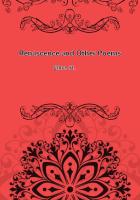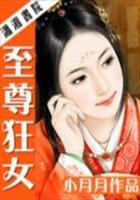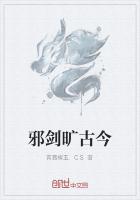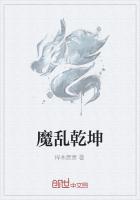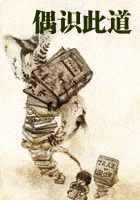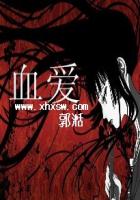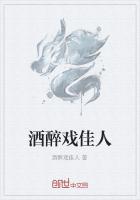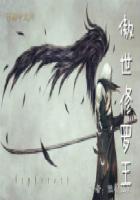Soon there were other causes of friction. King James and his son, Charles I, who succeeded him in the year 1625 both firmly believed in the principle of their "divine right" to administer their realm as they thought fit without consulting the wishes of their subjects. The idea was not new. The Popes, who in more than one way had been the successors of the Roman Emperors (or rather of the Roman Imperial ideal of a single and undivided state covering the entire known world), had always regarded themselves and had been publicly recognised as the "Vice-Regents of Christ upon Earth." No one questioned the right of God to rule the world as He saw fit.
As a natural result, few ventured to doubt the right of the divine "Vice-Regent" to do the same thing and to demand the obedience of the masses because he was the direct representative of the Absolute Ruler of the Universe and responsible only to Almighty God.
When the Lutheran Reformation proved successful, those rights which formerly had been invested in the Papacy were taken over by the many European sovereigns who became Protestants. As head of their own national or dynastic churches they insisted upon being "Christ's Vice-Regents" within the limit of their own territory. The people did not question the right of their rulers to take such a step. They accepted it, just as we in our own day accept the idea of a representative system which to us seems the only reasonable and just form of government. It is unfair therefore to state that either Lutheranism or Calvinism caused the particular feeling of irritation which greeted King-James's oft and loudly repeated assertion of his "Divine Right." There must have been other grounds for the genuine English disbelief in the Divine Right of Kings.
The first positive denial of the "Divine Right" of sovereigns had been heard in the Netherlands when the Estates General abjured their lawful sovereign King Philip II of Spain, in the year 1581. "The King," so they said, "has broken his contract and the King therefore is dismissed like any other unfaithful servant." Since then, this particular idea of a king's responsibilities towards his subjects had spread among many of the nations who inhabited the shores of the North Sea. They were in a very favourable position. They were rich. The poor people in the heart of central Europe, at the mercy of their Ruler's body-guard, could not afford to discuss a problem which would at once land them in the deepest dungeon of the nearest castle. But the merchants of Holland and England who possessed the capital necessary for the maintenance of great armies and navies, who knew how to handle the almighty weapon called "credit," had no such fear. They were willing to pit the "Divine Right" of their own good money against the "Divine Right" of any Habsburg or Bourbon or Stuart.
They knew that their guilders and shillings could beat the clumsy feudal armies which were the only weapons of the King.
They dared to act, where others were condemned to suffer in silence or run the risk of the scaffold.
When the Stuarts began to annoy the people of England with their claim that they had a right to do what they pleased and never mind the responsibility, the English middle classes used the House of Commons as their first line of defence against this abuse of the Royal Power. The Crown refused to give in and the King sent Parliament about its own business.
Eleven long years, Charles I ruled alone. He levied taxes which most people regarded as illegal and he managed his British kingdom as if it had been his own country estate. He had capable assistants and we must say that he had the courage of his convictions.
Unfortunately, instead of assuring himself of the support of his faithful Scottish subjects, Charles became involved in a quarrel with the Scotch Presbyterians. Much against his will, but forced by his need for ready cash, Charles was at last obliged to call Parliament together once more. It met in April of 1640 and showed an ugly temper. It was dissolved a few weeks later. A new Parliament convened in November.
This one was even less pliable than the first one. The members understood that the question of "Government by Divine Right" or "Government by Parliament" must be fought out for good and all. They attacked the King in his chief councillors and executed half a dozen of them. They announced that they would not allow themselves to be dissolved without their own approval. Finally on December 1, 1641, they presented to the King a "Grand Remonstrance" which gave a detailed account of the many grievances of the people against their Ruler.
Charles, hoping to derive some support for his own policy in the country districts, left London in January of 1642. Each side organised an army and prepared for open warfare between the absolute power of the crown and the absolute power of Parliament. During this struggle, the most powerful religious element of England, called the Puritans, (they were Anglicans who had tried to purify their doctrines to the most absolute limits), came quickly to the front. The regiments of "Godly men," commanded by Oliver Cromwell, with their iron discipline and their profound confidence in the holiness of their aims, soon became the model for the entire army of the opposition. Twice Charles was defeated. After the battle of Naseby, in 1645, he fled to Scotland. The Scotch sold him to the English.
There followed a period of intrigue and an uprising of the Scotch Presbyterians against the English Puritan.

